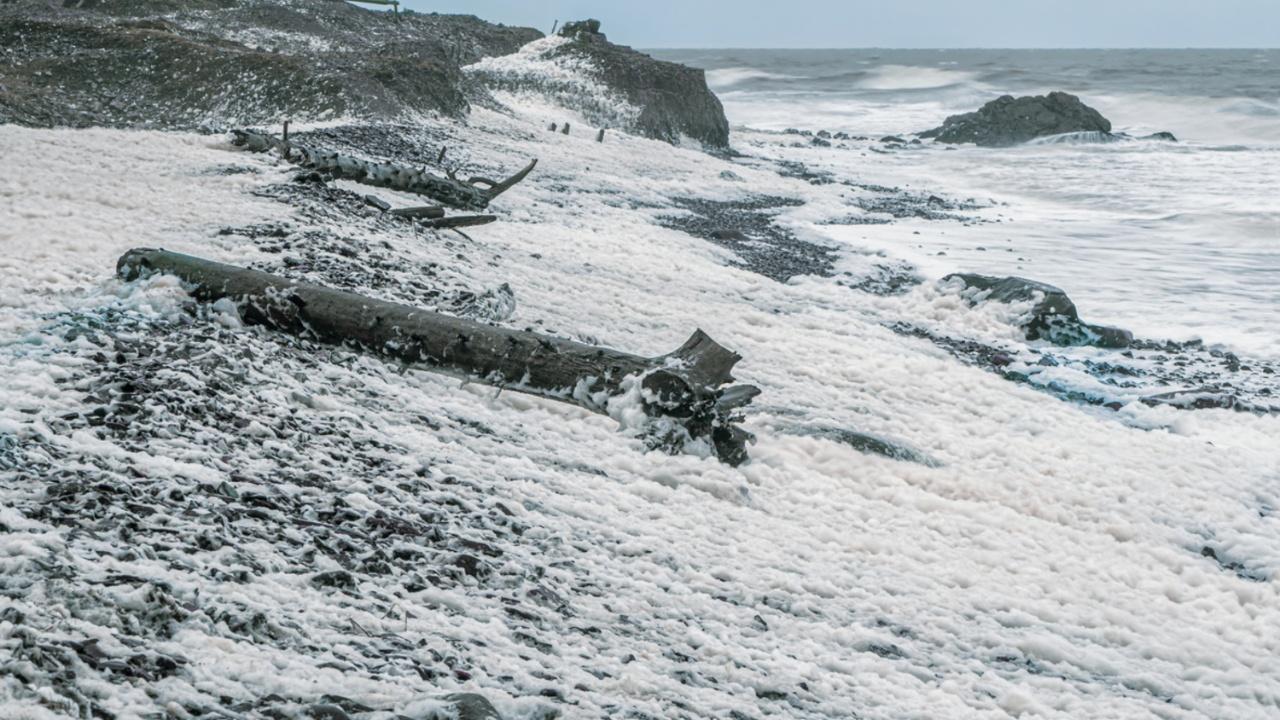Submarine landslides are a major geohazard with the potential to trigger tsunamis that can lead to huge loss of life. The landslides can also destroy infrastructure including subsea cables, meaning future such events would create a wide range of economic and social impacts

As climate change heats the oceans, researchers think that there's a possibility that these tsunamis could be unleashed once more, they said, stressing the immediate need for mitigation efforts. Photo Courtesy: iStock
A new study has warned that increasing global climate change - including warmer waters, rising sea levels and shrinking ice sheets can give rise to deadly tsunamis from Antarctica. The study, published in the journal Nature Communications, is based on analysis of past underwater landslides in Antarctica.
An international team of researchers, led by those from University of Plymouth, in the U.K. said that the future seismic events off the coast of Antarctica might again pose a risk of tsunami waves reaching the shores of South America, New Zealand and Southeast Asia.
ADVERTISEMENT
"Submarine landslides are a major geohazard with the potential to trigger tsunamis that can lead to huge loss of life," Jenny Gales, a lecturer in hydrography and ocean exploration at the University of Plymouth, said in a statement.
"The landslides can also destroy infrastructure including subsea cables, meaning future such events would create a wide range of economic and social impacts.
"Our findings highlight how we urgently need to enhance our understanding of how global climate change might influence the stability of these regions and potential for future tsunamis," Gales said.
Researchers first found evidence of ancient landslides off Antarctica in 2017 in the eastern Ross Sea.
They uncovered layers of weak, fossilised and biologically-rich sediments hundreds of metres beneath the seafloor.
These formed beneath extensive areas of underwater landslides, many of which cut more than 100 metres into the seabed.
The scientists said these weak layers - made up of historic biological material - made the area susceptible to failure in the face of earthquakes and other seismic activity.
They also highlight that the layers formed at a time when temperatures in Antarctica were up to 3 degrees Celsius warmer than they are today, when sea levels were higher and ice sheets much smaller than at present.
But as climate change heats the oceans, researchers think that there's a possibility that these tsunamis could be unleashed once more, they said, stressing the immediate need for mitigation efforts.
Also Read: Emissions from banned chemicals that destroy ozone layer resurging: Study
This story has been sourced from a third party syndicated feed, agencies. Mid-day accepts no responsibility or liability for its dependability, trustworthiness, reliability and data of the text. Mid-day management/mid-day.com reserves the sole right to alter, delete or remove (without notice) the content in its absolute discretion for any reason whatsoever
 Subscribe today by clicking the link and stay updated with the latest news!" Click here!
Subscribe today by clicking the link and stay updated with the latest news!" Click here!








